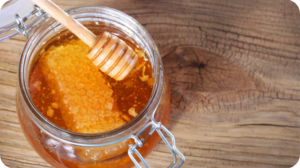Although banning gluten has become something of a mantra for anyone seeking to eat healthier, it can be hard to avoid. Gluten is a natural bonding protein found principally in wheat and other bread grains, but also in pasta, cereals, and even beer. It is responsible for the texture and structure of many baked goods. According to the Cleveland Clinic, only about 6 percent of the population experiences gluten sensitivity or intolerance (the more serious, related Celiac disease occurs in about 1 percent of the population). It can, however, exacerbate Irritable Bowel Syndrome (IBS) and related conditions such as Crohn’s disease.

One of the most puzzling realities of gluten intolerance is its unpredictability. Although the cause and symptoms are gender-neutral, the condition affects more women than men. It can be present from birth, but it can also occur unexpectedly, later in life.
Researchers are still trying to determine the cause or causes. In fact, they are trying to figure out how to determine if gluten is actually the problem, given the symptoms can occur in response to particular carbohydrates or even compounds found in wheat.
Regardless, the symptoms of gluten intolerance range from inconvenient to painful and debilitating. They include:
- Abdominal pain
- Fatigue
- Anemia
- Gas
- Bloating
- Nausea
- Depression.
Oddly, gluten intolerance can cause both diarrhea and constipation.
A major challenge with gluten sensitivity is simply diagnosing it in the first place. The normal protocol if gluten sensitivity is suspected is for your healthcare provider to test your blood and skin on a regular basis to eliminate other possible food allergies. The next step is to begin eliminating gluten-containing foods from your diet. Your healthcare professional will likely ask you to keep a careful record of any changes to see if your symptoms improve over a period of weeks.
If they do improve, you can begin to add specific foods back into your diet one at a time, to see if they cause symptoms. This allows you to keep non-offending foods in your diet.
The only other way to combat gluten sensitivity is to boost gut health. Holistic practitioners often recommend taking a probiotic once a day. Eating smaller more regular meals may help as well. If you find you have to cut out most carbohydrates, you may need to boost your intake of vegetables to help control blood sugar and get enough fiber.
If gluten intolerance has led you to exclude a number of foods, it’s wise to get regular blood panels through your primary caregiver, to check your cholesterol, vitamin and mineral levels, and blood iron.
Share some love if you like this post!





